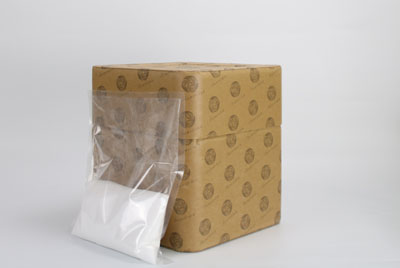Study On The Stability Of Sucralose In Bread
A new study from Canada shows that the use of substances such as glycerin or fat as a recipe for baked goods should be treated with caution.
Researchers from McGill University report that chlorides in sucralose can chlorinate glycerol to chloropropanol, a potentially toxic component. However, there is still doubt about what constitutes such a compound in food.
Dr Varoujan Yaylayan, a leading researcher from the Food Science and Agricultural Chemistry Department, told FoodNavigator that the purpose of the study was to "specify the problem" when the food was heated at high temperatures to form chlorides.
The researchers showed that “mixed foods can speed up or reduce the process,” “in order to clearly demonstrate that this reaction can be produced during food processing, special experiments are needed.”
The researchers showed: "Our goal is to prove that this experiment can indeed be produced."
According to a study published in the Food Chemistry Weekly, sucralose will be degraded under the conditions of coexistence of glycerol and derivatized sucralose.
The researchers added that when baking foods that contain glycerol or lipids or have the ability to form toxic chloropropanols, careful use of sucralose-substituted sucralose is required.
Unrealistic or incredible?
The results of this study were overturned by the sugar supplier Tate & Lyle and considered unrealistic. The company's presentation to FoodNavigator showed that the stability of the ingredients, including the stability during the high temperature process, is the most basic monitoring regulation by regulators around the world.
The spokesperson added: "All of this written tests show that sucralose does not degrade during normal food processing." "Food products, including baked products, use these tests."
The spokesperson added that McGill's research conditions are unrealistic compared to the arrangement of sucralose in food.
“It is unscientific to make these conclusions from the experimental sucralose under normal food processing conditions.”
The spokesman added: "In fact, the processing of sucralose and its own stability is one of the many reasons why the high-intensity sweetener sucralose is in the leading position in the food market and sweetness."
Bread
The new study was sponsored by the Natural Sciences and Engineering Research Council of Canada (NSERC) and sought to break down sucralose at high temperatures. Drs Yaylayan and Rahn also studied the consequences of releasing hydrogen chloride from sucralose and foods containing chlorinated and glycerol-related components derived from chlorinated alcohol.
The researchers observed that sucralose was thermally degraded in glycerol at 250 °C. A large amount of 1,3-dichloro-propanol and 3-monochloropropanediol are produced, and their chromatographic peaks are 15% of the total peak area relative to the relative intensities of their peaks.
More and more attention to food
Dr Yaylayan showed that chloropropanol was found in very good foods, and their work will continue to study the formation mechanism of chloropropanol, which is not related to sucralose.
According to the 2009 report of the International Institute of Life Sciences (ILSI): Most of the chloropropanol is 3-chloro-1,2-dipropanol (3-MCPD). It has been observed in many baked goods. Foods containing fats and salts form 3-MCPD during heating at elevated temperatures.
"calling for scientific" security
The safety of sucralose has been supported by a panel of experts in recent review documents, which are published in toxicity and biopharmaceutical regulations.
The panel pointed out that “because the public has always been concerned about the safety of food ingredients, including non-nutritive or nutritive sweeteners, all food safety data must be made public, this is very important, and this data There must be more accurate estimates to ensure the accuracy of the conclusions supported by data from specific designs and research."
The published article shows: “A large number of safety data on sucralose and maltose have been rigorously evaluated by experts from all over the world. These feasibility data indicate that sucralose, sucralose and maltose are used under certain conditions. It’s safe.”
RECOMMENDED

LAST POSTS
January 28, 2020
Study On The Stability Of Sucralose In Bread
January 28, 2020
Application Of Sucralose In Coffee Beverage
January 28, 2020
PepsiCo will stop using aspartame and replace it with sucralose
July 28, 2018
Sucralose Market Status And Trend In 2018
January 28, 2018
View more posts
